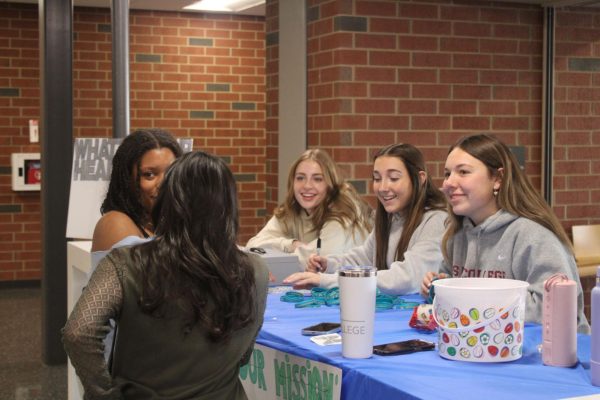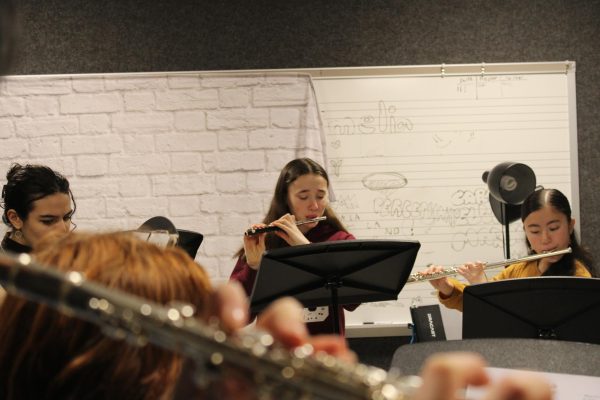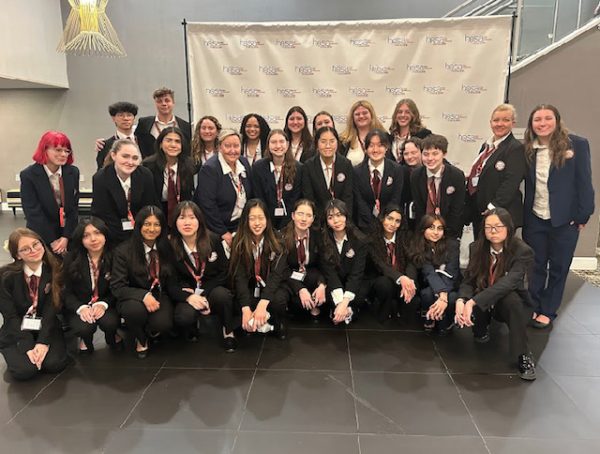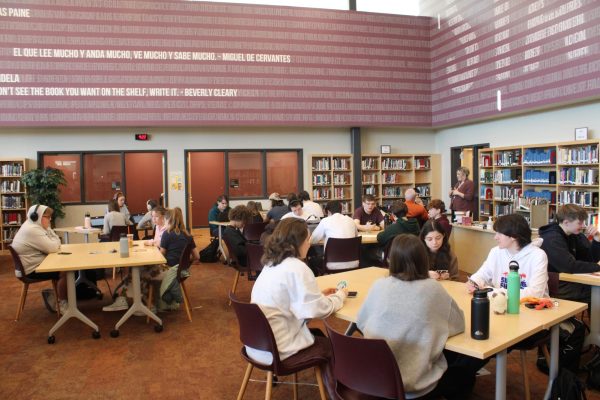The Question of the Gap Year
March 31, 2023
The question of the future is one that hovers behind the mind of every high school senior. Where, what, and who they will be is a mystery, and sometimes a frightening one. The predetermined path that has been established for young adults has been overwhelmingly pushed as four-year college attendance. However, the options following graduation are much broader than external messages may have students believe.
Taking a ‘gap’ year has grown rapidly in popularity in Generation Z, something that could be directly linked to the climbing costs of college debt. A gap year is a break from formal education that some students take between high school and college. During this time, students are given the opportunity to engage in activities such as traveling, working, or pursuing personal passions. The vast majority of students who opt for a break choose to work a job as a replacement, whether out of necessity or want. The threat of student debt is a large force pushing this movement. According to the Education Data Initiative, Between 1995 and 2022, the total federal student loan debt balance increased 774.1%. The crippling effect of leaving university with thousands to repay can destroy the chance of financial stability, even in late adulthood.
Freedom from formal education after up to 12 years of schooling can be a valuable opportunity for students to gain life experience. These experiences can assist in developing new skills and gaining a deeper understanding of themselves and their goals. These can also be used as an opportunity to combat what is called “academic burnout,” a phenomenon of highly capable students declining in performance due to exhaustion.
Youngin Ryoo, a senior at State High, does not plan to attend college after graduation. Currently working at a music studio, he plans to continue this work.
“Taking a gap year has always felt like the obvious thing to do. As a sound engineer and somebody who works within the arts, a college degree has never been something on the forefront of my mind. I see the utility of college in terms of networking. College opens doors to new people, communities, existing institutions. It allows you to meet other like-minded people who are as dedicated to something as you’re dedicated to. This, in addition to the facilities, research opportunities, and many other great benefits of going to university,” said Ryoo. “For me, as somebody who has found the community, found an entrance to the existing institutions, and peers who are just as dedicated to my craft as I am, college does not seem as necessary.”
However, it is also extremely important to consider the risks of taking a gap year. For adults opting for more life experience, the cost of travel and lost income from delaying entry into the workforce can negatively impact security.
While taking a gap year can be a valuable experience for many students, there are also potential dangers or drawbacks that should be considered. Here are some of the potential dangers of taking a gap year:
- Delaying academic progress: Taking a gap year may delay a student’s progress toward their academic goals, which could lead to taking longer to graduate or missing out on opportunities such as internships or study abroad programs.
- Losing momentum: Some students may find it difficult to get back into the academic mindset after a gap year and may struggle with motivation or adjustment upon returning to college.
- Financial strain: A gap year can be expensive, particularly if a student is traveling or pursuing unpaid opportunities. This can lead to financial strain or debt, which could impact future opportunities.
- Lack of structure: Without the structure of a formal academic program, some students may struggle to stay on track with their goals and may find it difficult to make the most of their gap year experience.
- Cultural adjustment: If a student is traveling or living abroad during their gap year, they may experience culture shock or struggle to adjust to new environments, which could impact their mental health and wellbeing.
It’s important for students to carefully consider these potential dangers and weigh them against the potential benefits of taking a gap year. They should also research their options and create a plan for how they will use their time during the gap year to maximize its benefits and minimize its risks. Despite this, it is still true that for many students, the benefits of taking a gap year far outweigh the costs. It can act as a transformative experience that helps them better navigate their college years and beyond.
“The difference in my approach to others, is that I am choosing to not go to college immediately in order to continue to work on an opportunity I’ve already been given. I am not taking a gap year to figure myself out, and my priorities, like many others do,” said Ryoo. “I feel that those who are lost in life, who do not know their values, their morality, who lack strong connections, and a clear goal, should take a gap year. Time helps to clarify what matters. When the habitual environment of school fades away, all that is left is what you want- the deconstruction gives the opportunity to build something from scratch.”
In many societies, there is a strong cultural and societal pressure to attend college. This pressure can come from parents, peers, educators, and other influential people in a person’s life. The pressure to attend college can stem from a belief that a college degree is necessary for success and upward mobility in life, or from a desire to conform to societal expectations and norms.
This pressure can be particularly strong in cultures where higher education is seen as a status symbol or a way to demonstrate intellectual or professional achievement. This can lead to a sense of obligation or guilt among those who do not attend college, even if they have other plans or goals for their future.
Gap years are more common in some countries than others. According to the Student Conservation Association, “a recent study by the Cooperative Institutional Research Program at UCLA found that only 3% of American students take a year off before heading to college. In Europe and Commonwealth countries, however, the “gap year” has been a well-established tradition since at least the 1960s”. Students considering a gap year should research their options carefully, including potential programs or opportunities for travel, volunteering, or work that align with their interests and goals.
The pressure to attend college can also be influenced by economic and political factors. In many countries, the government provides financial incentives or assistance to encourage young people to attend college, which can create a sense of obligation or expectation to pursue higher education.
While attending college can be a valuable experience for many students, it’s important to recognize that it’s not the best option for everyone. Some people may have different career goals or interests that don’t require a college degree, while others may prefer to pursue vocational or trade programs instead. It’s important to prioritize individual interests, goals, and values when making decisions about education and career paths, rather than feeling pressured to conform to societal expectations.












